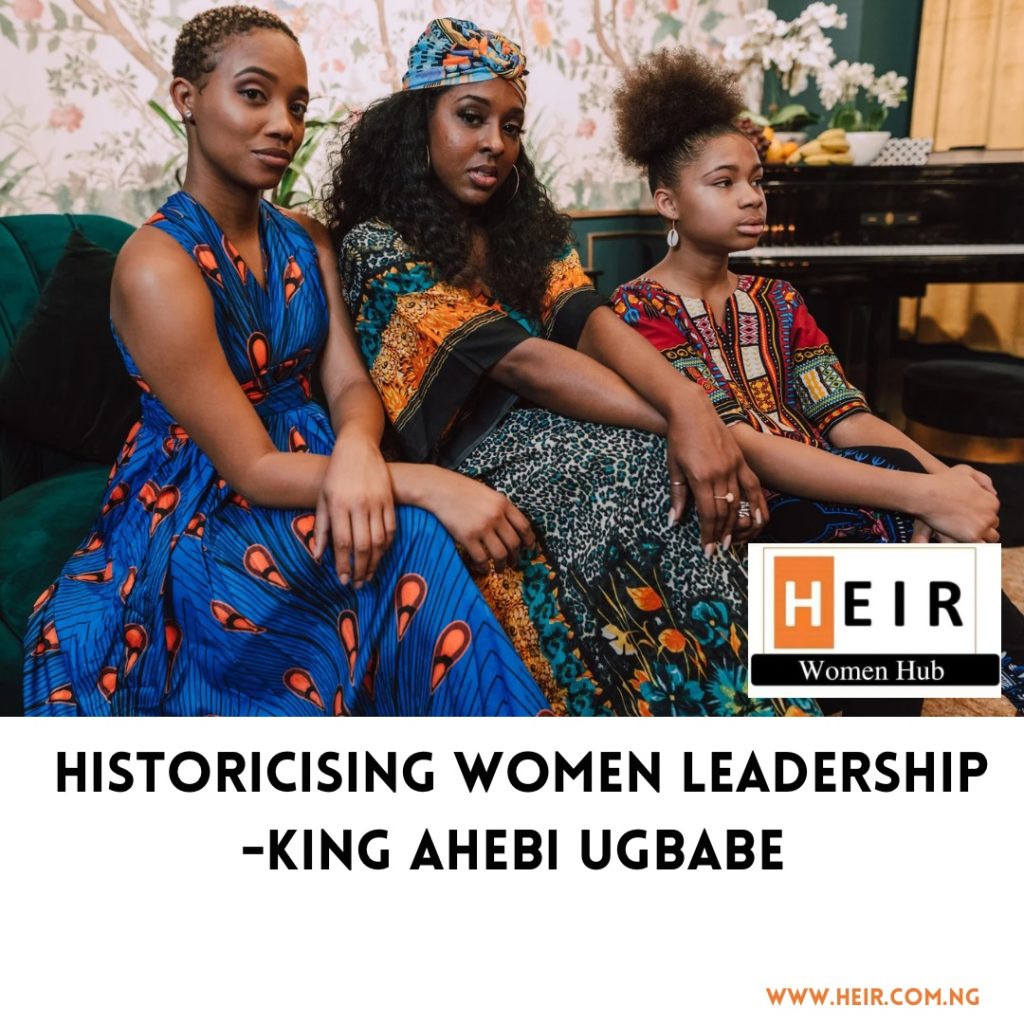
I had once engaged with a group of listeners on the gap in history I had when trying to internalise and understand the positions of women in society. The conversation was on the dwindling number of women as role models Nigeria has and what the minds of girls and young women have been socialised to believe, prioritise and become. My thoughts lead me to take on a module on Gender and History, a decision I am very honoured to have made.
It’s a very troubling situation to see an entire Nation, almost loose her position in placing women at the centre of affairs and decision making giving an impression that women aren’t capable and reimposing colonial control over the people. Women are often times reminded of the greats in trickles and on occasions of celebratory grandeur instead of being a daily reminder and an action deliberate enough to re-position women due to the historical and archival references of their greatness and leadership prowess.
Discovering and studying the life of a King called Ahebe Ugbabe, first woman who became King, first woman to become a Warrant Officer during colonial interruptions, first woman to act in the capacity of a King in a Kingdom in Igbo land and perform male centered norms such as masquerade and wife marrying, brought an ambivalence in present day reality of women’s exclusion in leadership. An ethnographic discovery by Chinua Achebe’s daughter, Nwando Achebe, this history brought about layers of knowledge and rich historical information about women who lead. Just like King Ahebe, many women have taken up mantles of leadership, disrupted norms, represent in spaces that have been dominated by male headship and performed. Engaging others with my found discovery was met with doubt and confusion for some as many girls and young women (and men) have not heard of a woman being a King. This proves the point that history on women requires amplification for a society to understand better.
The recent remake on Funmilayo Ransome-Kuti should go beyond theatrical reactions to digging deeper into the structural misalignment that power concentration on mostly men has created. The warriors of Dahomey, an all women security force providing protection to the King of Benin Republic was aired in Western media, that got reactions and arguments about its existence but it made a mark on knowledge for girls and women. Nwando Achebe wrote yet another book documenting the female Monarchs and Merchant Queens of Africa that shows we have historical records to re-tell. Many movies of heroes who were women, grace our screens, all from history. The question for me is – How do we transition this important stories and replicate them into systems?
Historical figures of women prove the obvious- that women have the innate capacity and ability to lead. One must question whether society has the power to change current underpinnings of control of majority by minority and then catapult the re-positioning of a great Nation like Nigeria.
Nigeria needs her women. It’s been tested and proven historically, across the globe, Africa and Nigeria, that making women count in leadership and real time representation, provides economic benefits and positive global recognition and positionality. Still, policy makers have not shown the material evidence to agree and align with historical evidence of women in leadership. We recently campaigned for the Gender Bills and was denied. The National Assembly has now begun a review of a Bill to create 74 additional seats for women in parliament. This is met with many perspectives as did the previous bills before this that advocate for more women in positions of authority.
I continue to advocate. Girls and young women require a reflection on history for the archives have stories of greats to tell. I look forward to the moments that Nigeria will show us all what female representation should look like, from history to present.
Añuli Aniebo
